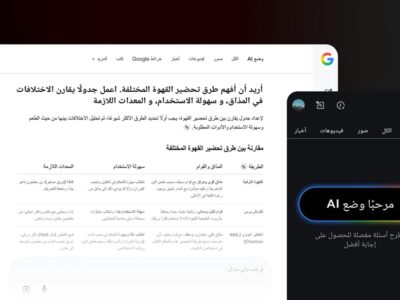Until a few months ago Ziad Makhzoumi was overseeing the construction of some of the region’s most significant buildings, including Dubai’s Burj Khalifa. Now he is helping to create lives — literally — in what is one of the most dramatic career changes in Dubai’s business world.
The 30-year veteran executive has a history of running companies involved in manufacturing, construction, consulting and the like. When he left his position as CFO at Dubai-based construction company Arabtec Holding, after helping to build the world’s tallest tower, in February following a management shake-up led by its largest shareholder, Abu Dhabi state fund Aabar, Makhzoumi says he was approached by a stream of firms and government entities wanting to secure his expertise. Even the Saudi government asked him to help expand some of its investments.
He could have made a lot of money from it. But another, less powerful, man won over Mahkzoumi’s heart with the call to lead the young fertility firm, Fakih IVF, as it expands across the Middle East, helping couples to have children.
“This is what grabbed me: you see life developing very clearly and you’re a part of that nurturing process to ensure that it eventually becomes a child. That really is a fascinating process,” Makhzoumi says, explaining his decision to become CEO.
“Seeing people come in concerned and going out, eventually, with a child that they love and nurture and is healthy — that’s part of the factors that swayed me.
“When I was introduced to [founder] Dr [Michael] Fakih, I thought he was an amazing person and he’s a pioneer in what he’s doing, but he also has a very good team working with him. His wife Dr Amal Al Shunnar is also a leading expert in IVF and she’s an Emirati local. So all the ingredients were there to make it interesting for me to say, ‘yeah, I’d like to have a go at this’.”
That’s not to say the numbers don’t stack up, as well. They certainly do, and perhaps even more so than the other opportunities.
In-vitro fertilisation (IVF), along with the entire healthcare market, is a rapidly growing sector in the Middle East as citizens become wealthier and more capable of demanding better services and choices. Couples also are delaying marriage and children, which, when paired with increasing lifestyle diseases such as type II diabetes, is making it biologically more difficult for them to conceive naturally.
The United Nations World’s Women 2010 report found the UAE fertility rate had more than halved between 1980 and 2010 to reach the lowest level in the Gulf. The number of births per woman decreased from 5.2 to 1.9.
Article continued on next page
The Middle East is decades behind countries such as the UK, US and Australia, which have led advancements in IVF. The first successful birth of an IVF baby was in July 1978, but the first clinics in the Gulf have only opened since the turn of the century.
“This is a promising sector. There’s always a waiting list,” Makhzoumi says.
“If you go to one of our clinics, on a good day there are 30 people, on a very good day there are 60 clients that go through the door, sometimes more. That’s in one location. In Abu Dhabi, we see probably over 100 a day, not [necessarily] to have the treatment, but to start the process. I was in Abu Dhabi two days ago and I left the clinic at 5.20pm and we still had eighteen patients waiting. So that’s an indication that there’s demand.”
Fakih IVF opened its first clinics in Dubai and Abu Dhabi two years ago. During the first year, a combined 900 procedures were completed. That grew to 1,500 in 2012. Earlier this year the company opened another centre in Abu Dhabi, which it says will help it double its annual figure to 3,000.
There are also plans to open in other emirates, as well as Qatar, Saudi Arabia and Kuwait, which are considered “very important, big markets” for IVF.
Makhzoumi says revenue has grown 150 percent each year since starting and is only going to grow faster as more centres open. However, he is adamant the business will deliberately grow slowly — there are, after all, real lives at stake.
“We do have an expansion plan; there is definitely a need for the service in the UAE and in the region, because couples are getting married later, [and there’s] economic pressures of not conceiving early and the need to populate certain regions, so it all adds on to the fact that there’s opportunity,” Makhzoumi says.
“This year I’d like to concentrate mainly on the UAE. If we can get possibly Umm Al Quwain, Ras Al Khaimah and Al Ain going, and the other centre in Dubai, I think the UAE will be more or less done. If we go into the [wider] GCC, I think it will not be before next year because I want to go in with a business model, including designs of the clinics, the systems, the processes, the training [and] the manuals, [and have] the people ready to move in.”
Makhzoumi says finding those people will not be difficult; luring them to the UAE could be harder.
“There’s always people, the question is attracting them here,” he says. “There are lots of good IVF doctors in Europe and the US that we can attract and we will be attracting as we grow. The quality of people is very important to us and we try to attract the best.”
Article continued on next page
The firm, which also has operations in the US and Lebanon, was founded by Dr Fakih, who has helped deliver 10,000 babies through IVF and is considered a pioneer in the industry. It already has carved out a strong reputation, with one of the world’s highest success rates — above 60 percent — measured by the number of women who fall pregnant using fertility treatment.
Fakih IVF offers numerous treatments for couples unable to naturally conceive, from non-invasive healthcare plans to in-vitro related procedures. Advanced technology means couples now can even choose the gender of their baby and undergo testing to screen for hereditary diseases and miscarriage risk. Doctors also can preserve the fertility of cancer patients.
Fakih IVF is the only fertility centre in the Middle East that owns an embryoscope, which increases the chances of a successful pregnancy.
“Technology has advanced so much that now we have what they call the embryoscope, which when you take the embryo it monitors it and takes a picture of its development every ten minutes and it checks all its chromosomes and possible defects so it can tell you which are the best embryos are when they are ready,” Makhzoumi explains.
“So that has great advantages: it has a higher success rate, it is more comfortable for the patient so they don’t have to go through as many procedures, and the results obviously are more positive than if you go the usual way.
“When I was fascinated by the whole thing and investigating my options, we had cases where a couple could not conceive and our visiting professor that comes and works with us actually found one sperm in the man — most men produce millions of sperm, but he had one sperm — and the wife got pregnant. To me that is amazing.
“This is not the first time, there have been a few cases where they come for the specific expertise that we have. To get to that point you must believe that what we’re doing is right, and the results speak for themselves.”
But Makhzoumi says it’s not only about technology.
“We’re taking the concept of IVF [and making] it from pre-treatment to post-treatment,” he says. “So we are developing the programme to make clients ready and healthy for the treatment, but we’re also going to make them healthy for other things too, [such as natural] pregnancies, or in general.
“The system we use can tell us specifically what is wrong with the person; specifically what needs to be done to make them better. This applies for conceiving, getting pregnant or health in general.
Article continued on next page
“Some other entities call it h-management but it’s not, it’s really just making your body not deteriorate faster because of our lifestyle. We overeat or indulge or don’t go to sports and so on, and naturally, our body is losing hormones, it’s losing supplements, so we can replace those.
“We have case studies of some of the patients we’ve dealt with. [For example] one guy was in his 30s but his body was equivalent to a 50 plus-year-old — [he was] overweight, [his] heart was not functioning well, [and he had poor] kidneys and liver. After about six months… the guy became extremely fit and healthy. So we cleared everything in one go, basically.
“It’s a programme that I think will add value and what distinguishes us from others is that we’re a centre of excellence.”
The early health assessments have proven to be a defining element of Fakih IVF, with a reasonable proportion of clients addressing medical issues that then allow them to conceive naturally.
While it may not add to the company’s profits, Makhzoumi says that as long as a baby is born he’s happy.
“Our role is to help couples have a healthy child. If it’s planning, if it’s supplements, if it’s treatment, if it is a specific programme of hormone replacement, if it’s stimulation, we will do whatever we believe is healthy and comfortable for the clients to achieve that success,” he says.
The Middle East has been held back in the IVF industry due to a lack of regulation and the moral and religious issues attached to it but Makhzoumi says the social prejudices are fading.
“It’s the Islamic culture that they want to have children, they do whatever’s necessary to have children,” he says. “It’s part of our culture, it’s part of our heritage, it’s part of our legacy; we like to have children and we go all the way within our moral and religious guidelines to achieve that.
“For example, donors are not allowed here whereas they are in other countries. So the relevant parts have to come from the married couple and we check that.
Article continued on next page
“People who have children also take it for granted that it’s natural and assume there is something wrong. Maybe there is, but it’s not necessarily true. It’s just that you need help to stimulate conception.”
He says couples are becoming better informed about infertility treatments, helping to breakdown the stigma — and nerves.
“Patients can get lots of answers before [they have the procedure]; we counsel them, we talk to them, we allocate a specific liaison officer for them. So we answer all their queries because it is a major decision for many reasons,” he says.
“One of them is there could be an element of feeling that [something is wrong with them] therefore they need external help to conceive and it’s not necessarily true. The couple could be healthy, it’s just that certain circumstances could be blocking it. There is an element of psychology, there is an element of biology, there is an element of diets, of general health.
“We have taken the approach that we need to address all of these issues from the beginning. This is probably why we’re the most popular, but also our success rate is the highest in the region. That’s because technology has been advanced and the techniques have been developed.”
Makhzoumi says while he had barely put his mind to the topic prior to considering the CEO role, he had no concerns about artificial insemination.
“I am a person who believes, I’m a person who is religious, I see no conflict in that,” he says. “It’s like any other operation that you do; it’s just that you’re guiding it in the most convenient conditions for it to succeed.
“The same way you have a transplant — you take a foreign heart and put it inside a body. Should that be there or not? The answer is, if it saves lives I think it’s our duty to do so as believers.”
And running Fakih IVF is like operating any other business, he says.
“I’ve done this in so many companies all my life, so the approach is not something that is new, it’s just the sector is different.”








